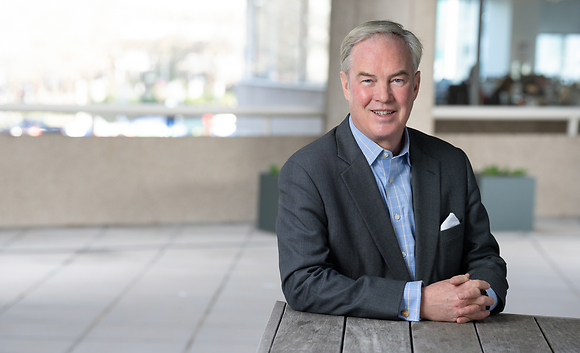CNN's Anderson Cooper Interviews Trevor Potter on Unprecedented Ethical Issues Involving Trump's Transition
| The unprecedented ethical concerns revolving around President-elect Donald Trump’s transition was the topic of discussion on CNN’s AC360⁰ where Caplin & Drysdale’s Trevor Potter was interviewed by Anderson Cooper on November 14, 2016. Please visit this link to view the videos, then scroll over to the video at 10:32 PM. Below is a transcript of the interview. COOPER: Joining me now is Norman Eisen, visiting fellow of the Brookings Institution and former special assistant and special council to President Obama for ethics in government reform, also, Trevor Potter, former chairman of the Federal Election Commission. COOPER: Right. Trevor, I mean, putting his businesses in a so-called blind trust, which he's not going to do, which the blind trust, I guess, it shouldn't be -- if it was really a blind trust, it wouldn't be run by his children, because they're clearly have daily conversations with him. He's certainly not going to cut off all contact with his kids for the next four years or eight years. TREVOR POTTER, FORMER FEDERAL ELECTION COMMISSION CHAIRMAN: No, I think he's clearly not going to. He's very close to them. The point is that a blind trust is a trust with a third party individual running it, someone who is at arm's length from the president, someone who has not done business with the president before or been part of his inner circle. And that person is supposed to make decisions without ever talking to the president, the person who's the beneficiary of the trust. So, this is not a blind trust, if his children are running it, because it's not at arm's length, and because, presumably, the children are going to talk to him, perhaps a lot, even if not about specific business decisions. COOPER: Right, and now, Ambassador, if they have a top-secret security clearance, that raises other questions, because it does make it seem like in addition to running his businesses, they may be giving him advice or at least hearing him discuss top-secret matters. EISEN: Again, it's unprecedented, Anderson. And what they're doing if the children and the children's spouses are going to get a top- secret security clearance is turning our national security apparatus into a management consulting operation for Mr. Trump's business operations. It runs in the face of the way presidents have respected the office, respected the American people, and frankly, respected the world, by taking the assets, liquidating them, letting an independent trustee manage them, and the presidents not know, actually, what the trustee is doing with that money. So we know it's conflict free when the president makes decision. COOPER: Sure, but in terms of what the president has to do legally, I mean, there are actual regulations for members of Congress, but when it comes to the president of the United States there are -- is it correct that there's no hard and fast rules when it comes to something like this? POTTER: That's largely correct. The president is exempt from the provisions of the Ethics in Government Act, which was passed in 1978. So that the members of his cabinet and of his staff in the executive branch have to establish blind trusts or they have to recuse themselves when they're dealing with any matters involving their holdings. And the -- as Norman Eisen noted, previous presidents have voluntarily established blind trusts. But they haven't had anything like the business holdings of Mr. Trump does ... COOPER: Right. POTTER: ... it is an international organization, which is why it's so important, I think, that this get thought through and done right, so it doesn't boomerang on the president and his administration. COOPER: Yeah, it's a fascinating topic. We'll continue to follow close. Normal Eisen, appreciate it, Trevor Potter as well. Thank you both. |
Attorneys
- Senior Counsel
